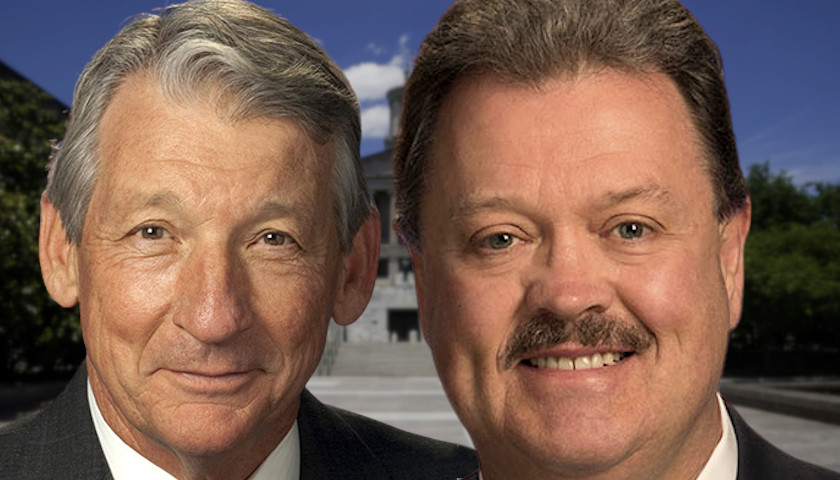The General Assembly is considering several bills to further expand upon the protected rights of free speech. These bills address free speech in areas of public life such as college campuses, social media, state governments, and elections.
Several legislators proposed a bill to create accountability for social media companies and the government entities that use them. State Senator Frank Niceley (R-Strawberry Plains) and State Representative Jerry Sexton (R-Bean Station) introduced legislation that would prohibit state agencies from utilizing any social media platforms that censor the free speech of others on the basis of political ideology, viewpoint discrimination, or personal animus. The language of the bill claimed that using those platforms was a “tacit acceptance” of the practice to limit or censor free speech and therefore a violation of the state constitution. That legislation is in committee currently in both the House and Senate.
The General Assembly is also considering whether Tennessee colleges and universities may have to modify their free speech policies. State Senator Mike Bell (R-Riceville) and State Representative Bryan Terry (R-Murfreesboro) introduced a bill to clarify that all public higher education can’t impose free speech policies that impede on a student’s ability to express political views. It also seeks to protect students from discrimination or retaliation as a result of their speech.
College journalists could also receive certain protections, though limited, if the General Assembly passes State Senator Jeff Yarbro’s bill. Titled “Good News for Students Act,” the proposed bill would clarify student journalists’ rights to free speech and press, with the exception of libel, slander, unwarranted invasions of privacy, state or federal law violations, incites violence, or isn’t otherwise protected by either the federal or state constitutions. The legislation doesn’t have a companion in the House, and is awaiting assignment in committee.
House Speaker Cameron Sexton (R-Crossville) and State Senator Paul Bailey (R-Sparta) introduced legislation to grandfather in all covenants, conditions, and restrictions before 2017 under the current Tennessee Freedom of Speech Act. The act imposes limits on the restrictions of political signage up to 60 days before a general election. This bill is being considered in committee in both the House and Senate.
The Tennessee Freedom of Speech Act may earn further amendments. State Senator Ferrell Haile (R-Gallatin) introduced a bill to expand the act’s provisions to all elections rather than just general elections. Its companion in the House was introduced by State Representative Tim Rudd (R-Murfreesboro) last month.
The topic of free speech experienced a renewed vigor after the January 6 Capitol riot. Controversy ensued over the failed impeachment trial of former President Donald Trump and the Big Tech shutdown of social media app Parler. Speech distributed by Trump and Parler were largely blamed by left-leaning politicians and the mainstream media for inciting the Capitol Hill rioters to violence.
– – –
Corinne Murdock is a reporter at The Tennessee Star and the Star News Network. Follow her latest on Twitter, or email tips to [email protected].






Good for them! Now Tennessee Legislature has to d like Montana and an Arizona:Sue the Biden Administration over not enforcing the Law of stopping Illegal Alien Entry and deporting enough of them!
Guess that this well intended (hopefully) bill would protect those whose version of free speech is kneeling during the National Anthem and other such disrespectful actions. Be careful of what you wish for. It can come back to bite you in the rear.